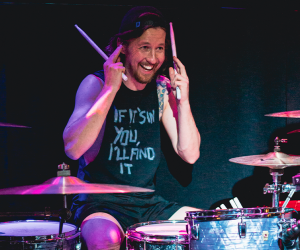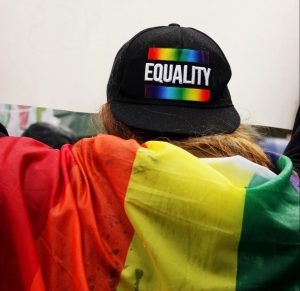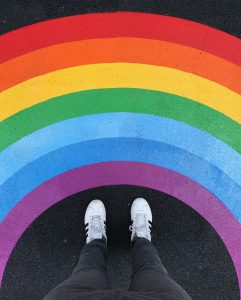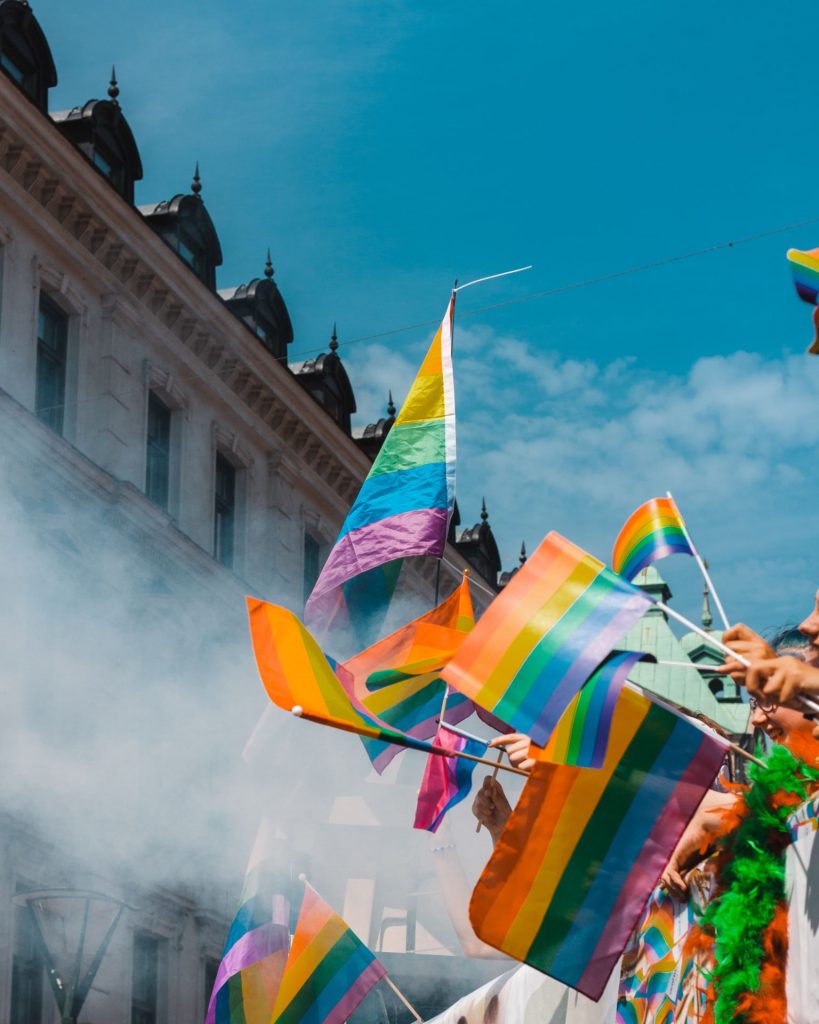We spoke recently with Danny Watts, an Executive Assistant in the School of Biological Sciences. Danny drums for Cosmic Ninja, who will be playing the mainstage of Bristol Pride at 6:25 pm on 9 July. While Danny doesn’t identify as LGBTQ+, the bands lead singer Tamsin Cullum does. We spoke to Danny about how Cosmic Ninja got involved in Bristol Pride 2022 and what it means to him to be an LGBTQ+ ally.

Can you tell me a bit about Cosmic Ninja?
Yes, so Cosmic Ninja started around 2015 and I joined the band in 2019. Musically, we could be described as rock/rave, or sort of dance, synth rock with like a punk rock like edge. Lyrically, it’s very left wing and politically active.
We’re motivated by a desire to write good music that you can have a dance and let loose to, while making people aware that inequality is happening all day, every day, everywhere and we need to do better.
Is this the first Pride you’ve played?
This is the first Pride I’ve personally played. The band themselves have played a couple of times before, including a completely berserk evening gig at Old Market Assembly a few years ago.
I did go a few years ago though, when it was in Castle Park. It was fantastic, so much happiness and joy.
This year we’re on at 6:25 pm on the mainstage, hopefully it’s gonna be a big one!
How did you get involved in Bristol Pride 2022?
Our singer Tamsin Cullum is a very proud member of the LGBTQ+ community and getting booked has been on the radar for a while, but obviously COVID caused everything to be backlogged. Because of the previous times the band have played and how successful it was, the decision was made that we should be moved to the mainstage this year.

Has the response to the LGBTQ+ nature of Cosmic Ninja changed over the time that you’ve been in the band?
If things have changed, I think that people are becoming more aware. It’s getting more into the minds of people that these inequalities exist. I wouldn’t say that too much has changed in a legislative way since I’ve been in the band, but you definitely hear a lot more about the LGBTQ+ community in media circles and on social media.
What does it mean to you to be an LGBTQ+ ally in 2022?
I think it is massively important to be an ally because of the inequality faced by the LGBTQ+ community. It still astounds me to this day that people who identify in that way are marginalized. As for myself, somebody who isn’t LGBTQ+ who doesn’t identify like that, I try to authentically be myself, wherever I am. And I find it very frustrating that other people can’t, or they feel like they can’t because of the pressure that society puts on them. So, I feel like I have a very important role in being able to push those voices and give them a chance to be themselves. This is the very least it seems you should be able to do.
We should celebrate everyone being themselves, and that’s why I feel like I can be an ally, especially in a band where the ethos that is front and centre of what we’re trying to do, is highlight inequalities via music.
A big thank you to Danny for giving up his time to talk to us. You can follow Cosmic Ninja @Cosmicninjaband on Facebook, Instagram and Twitter. You can also see the band at multiple festivals over this summer. If you would like to know more about how we are celebrating Pride, please visit our Pride webpage. And if you have your own stories to share about Pride or being part of the LGBTQ+ community please get in touch: student-comms@bristol.ac.uk.
#BristolUniPride #BristolPride





